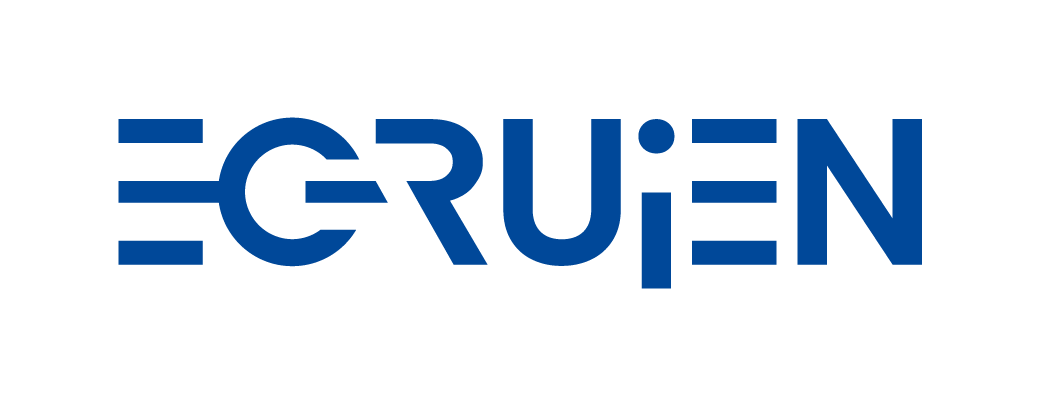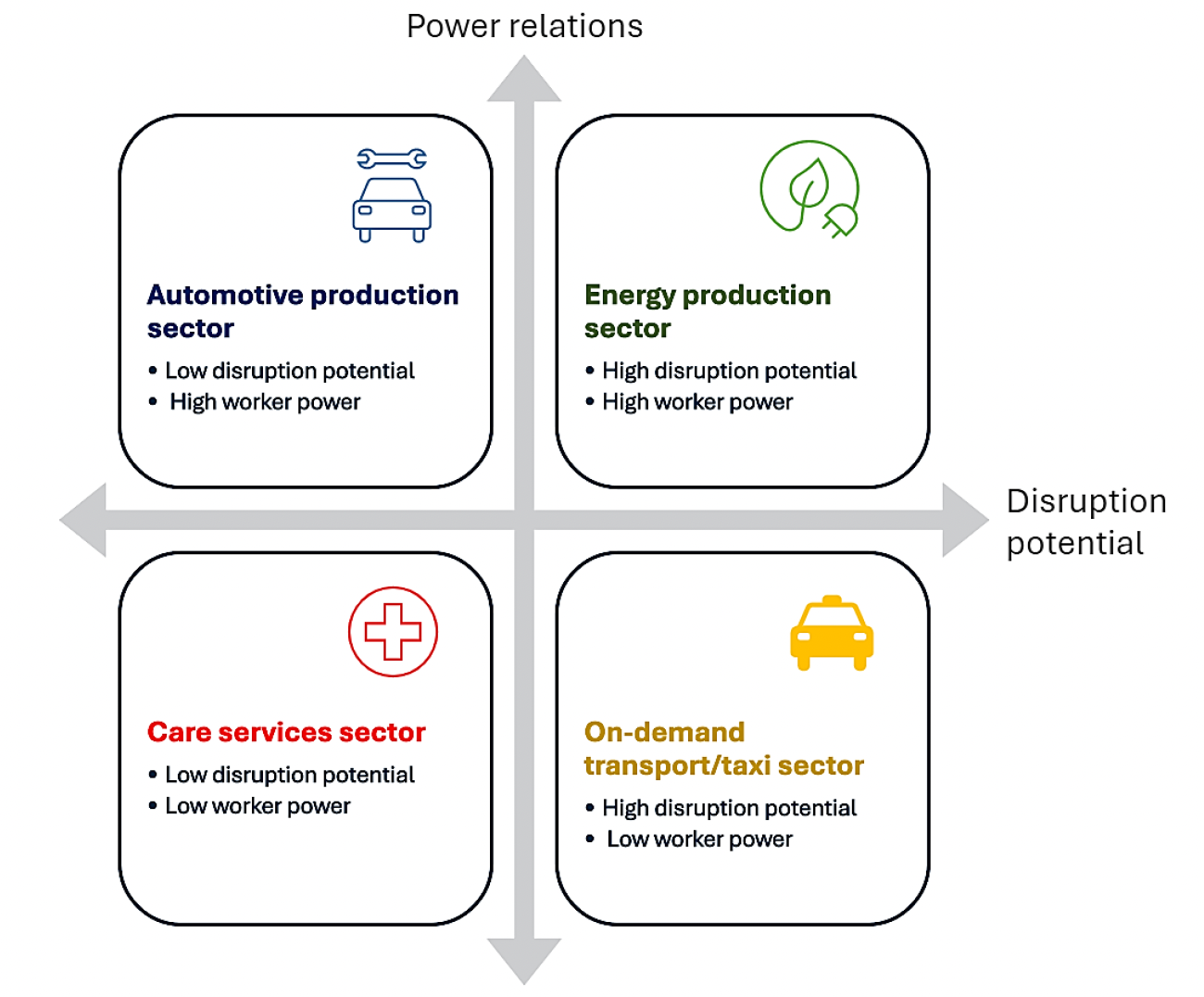Overview of EGRUiEN case study sectors
The EGRUiEN project aims to improve social dialogue in the context of the green and digital transition, to ensure that it brings about fair and inclusive outcomes for both employees and employers. Our analysis focuses on four sectors: two in industry (energy and automotive) and two in services (care and on-demand transport), which differ in terms of the level of disruption and the power dynamics between the parties involved in labor relations.
Industrial sectors such as energy and automotive require profound technological and organizational changes. For example, the transition in fossil-based energy requires careful management of its phase-out, while the development of renewables demands support for expansion, access to a qualified workforce, and adaptation of representation structures. In contrast, in the service sectors — care and platform-based transport — we can observe unstable forms of employment and weak worker representation, which significantly hinders the ability to negotiate and implement socially just changes.
The project is based on a theoretical model combining two key dimensions:
Disruption potential – the scale of technological and organizational change affecting a given sector,
Power relations – the level of worker organization and influence within institutions of social dialogue.
The classification of the selected sectors according to these dimensions is as follows:
Energy sector: high disruption potential, high workers' power
Automotive sector: low disruption potential, high workers' power
On-demand transport sector: high disruption potential, low workers' power
Care services sector: low disruption potential, low workers' power
Our model demonstrates that the effectiveness of transition depends not only on how deep the changes are, but also on whether there are structures of representation and social dialogue that allow for the process to be negotiated and socially fair.
EGRUiEN seeks to strengthen these structures, with a focus on protecting vulnerable groups – such as non-standard workers, migrants, and those in precarious employment – while also promoting gender equality and social cohesion in the face of rapid technological and economic transformation.

